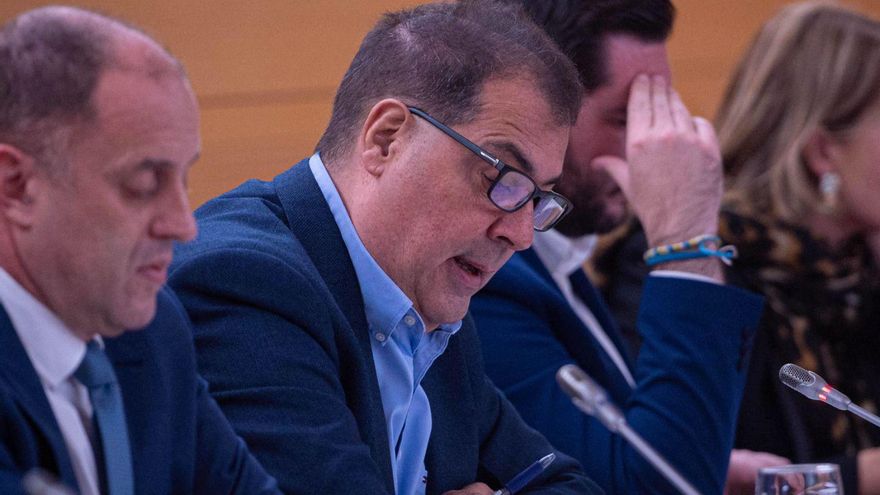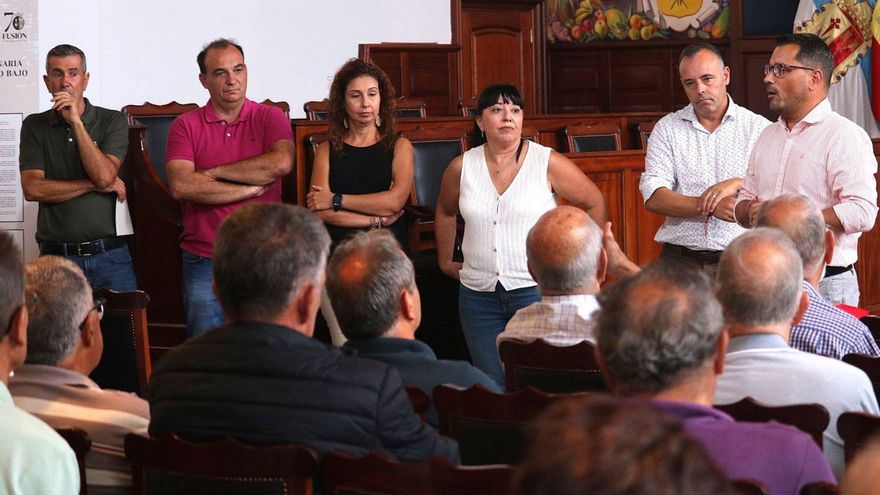The Irish low-cost airline Ryanair has followed through on its threat. CEO Eddie Wilson announced yesterday during a press conference in Madrid that the airline will cut one million seats (16%) in Spain for this winter season, resulting in a 41% reduction at regional airports (600,000 fewer seats) and a 10% decrease in the Canary Islands (400,000 fewer seats). The plan involves the elimination of 36 direct routes, 19 of which are to the Canary Islands. Additionally, Ryanair will cease operations at Tenerife North-Ciudad de La Laguna airport (and Vigo from 1 January). It will also close its base in Santiago de Compostela. This summer, the airline had already suspended operations in Jerez de la Frontera (Cádiz) and Valladolid. In the Canary Islands, flights from Gran Canaria, Fuerteventura, and Lanzarote will also be affected.
Reasons for the Cutbacks
This adjustment appears to be in response to Aena’s decision to increase airport charges by 6.5% for 2026, raising the fee to €11.03 per passenger, which Ryanair describes as “unjustifiable.” However, this is not the only reason. Earlier this year, the airline announced a reduction of 800,000 seats for the summer season. This measure has significantly impacted traffic at some airports since April. With the elimination of these 800,000 summer seats and the current cuts, Ryanair will have offered nearly 2 million fewer seats this year. The company has directed criticism at the airport operator, noting that some airports are almost 70% empty and warn that this could rise to 80% if Ryanair eliminates more routes. “We have 300 new aircraft to assign to competitive airports, which we are relocating to other countries such as Morocco, Italy, Croatia, Albania, Hungary, and Sweden,” Wilson stated. Ryanair has claimed that Aena concentrates 85% of its traffic at just 10 of its 46 airports and is unwilling to invest in the remaining ones. In fact, the executive predicted that “many of these airports will close in the next five to ten years.”
Aena Responds
In a statement, Aena’s president and CEO, Maurici Lucena, lashed out at Ryanair. He accused the airline of adopting a strategy based on “dishonesty,” “rudeness,” and “blackmail” to achieve financial benefits, claiming it has a “plutocratic perception of the political system.” He argued that Ryanair “distorts reality” and employs intimidation to gain advantages at the expense of taxpayers’ money. Lucena expressed “inexpressible amazement” at Eddie Wilson’s statements. According to Aena, a zero tariff at regional airports, as proposed by Ryanair, is not financially sustainable and “is only possible if subsidised with public funds.” The airport operator reiterated that its charges are the most competitive in Europe.
Government Reactions
There have been numerous reactions. “The Government of Spain and Aena will not submit to the arbitrary decisions of airlines,” said the Minister of Industry and Tourism, Jordi Hereu. In Las Palmas de Gran Canaria, José Antonio Santano, the Secretary of State for Transport, subtly criticised Ryanair, suggesting that the airline exaggerates its complaints against the authorities.
On social media platform X, the Canary Islands’ Minister of Tourism, Jessica de León, referred to the rise in airport charges and the “conflicts” within the Spanish government: “The airplane is not just another mode of transport but the only one for Canary Islanders and for our tourism.” From “a preliminary analysis,” the Vice President and Councillor for Tourism of the Tenerife Cabildo, Lope Afonso, concluded that Ryanair’s departure from Tenerife North airport “doesn’t appear serious, not by a long shot,” for tourism activity and will impact resident mobility more. Heading into winter, “there will not be a significant loss,” as the forecast for seats from October to March “does not reach 130,000.”
The manager of the hoteliers’ association Ashotel, Pablo González, expressed disappointment over this “bad news.” However, he doubts that the increase in fees is the sole reason for Ryanair’s actions: “We already know how this company operates. The issue of fees concerns all airlines, and some are even increasing their capacity. We know the air market is very flexible and elastic, and the space left by one company will be filled by another that sees a business opportunity. Therefore, we hope the impact on tourists and residents in the Canary Islands is minimal.”
Future Growth Plans
Ryanair conditions its growth plans in Spain, where it intends to invest €2.831 billion over the next seven years, on several demands from the government, including a freeze on airport charges and the introduction of incentive systems for Sustainable Aviation Fuel (SAF). It aims to expand its presence in the country (with five additional regional bases in Gran Canaria, Fuerteventura, Menorca, Reus, and Santander) and boost operational capacity to unprecedented levels. So far, this proposal has gone unanswered. This capital and asset injection would enable the airline to increase its annual passenger traffic by 40%, reaching 77 million by 2031, according to data accessed by Europa Press.
Economic and Employment Concerns
The “economic, documentary, and fiscal barriers” in air routes to the Canary Islands “will directly impact employment and the economy.” This was the concern expressed by Deputy Regional Minister for Tourism, José Manuel Sanabria Díaz, when asked about Ryanair’s cuts to connections.
He believes Aena has shown a lack of sensitivity towards this “ultra-peripheral region” of the European Union: “We are waiting to see how this particularly affects Canary Islanders, who rely on air transport as a regular means of communication between the islands and with the outside world.”
Sanabria took the opportunity to reiterate the request for the Canary Island Administration to participate in airport management in some capacity.














